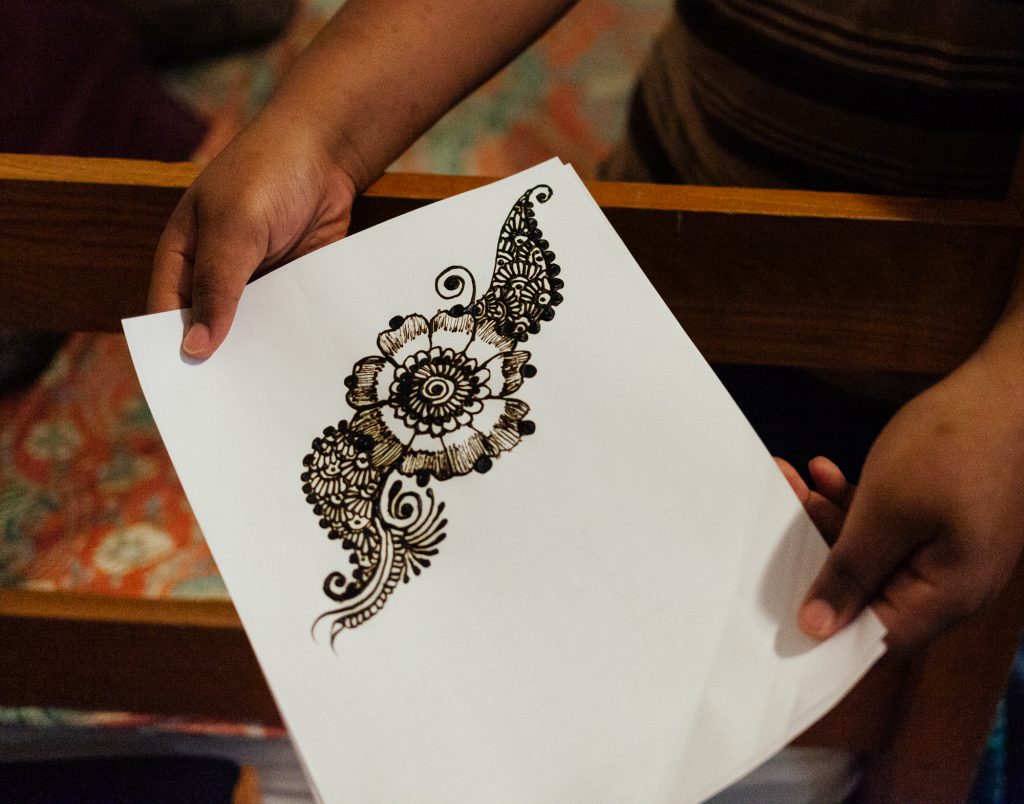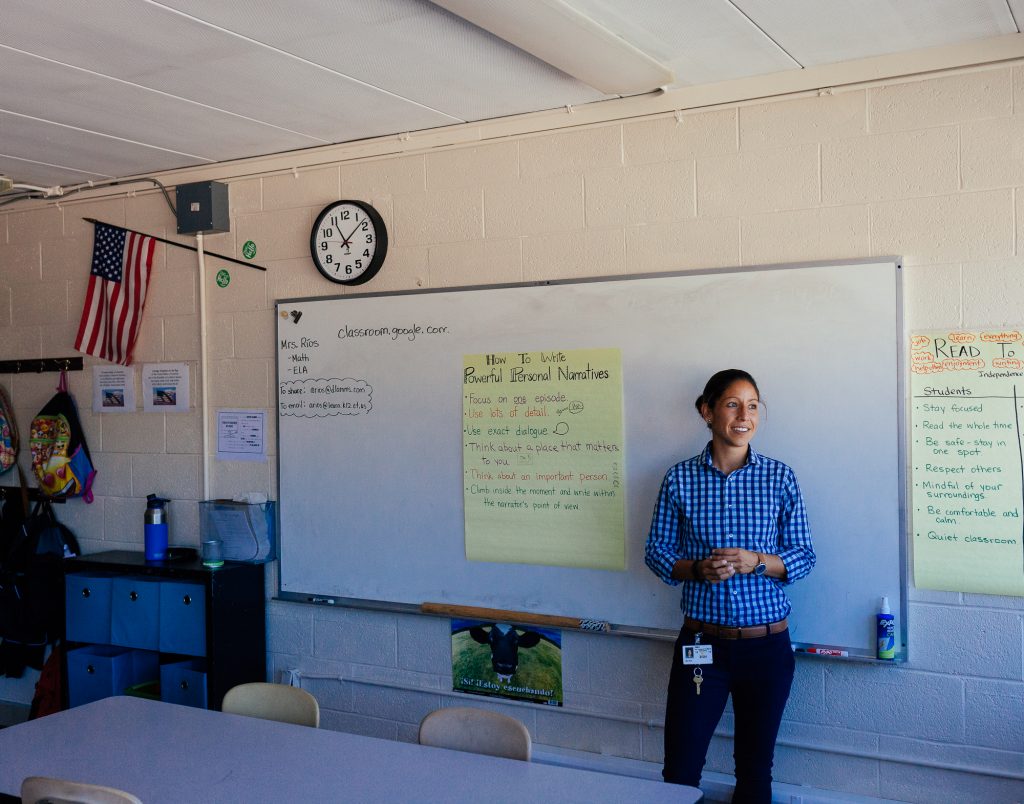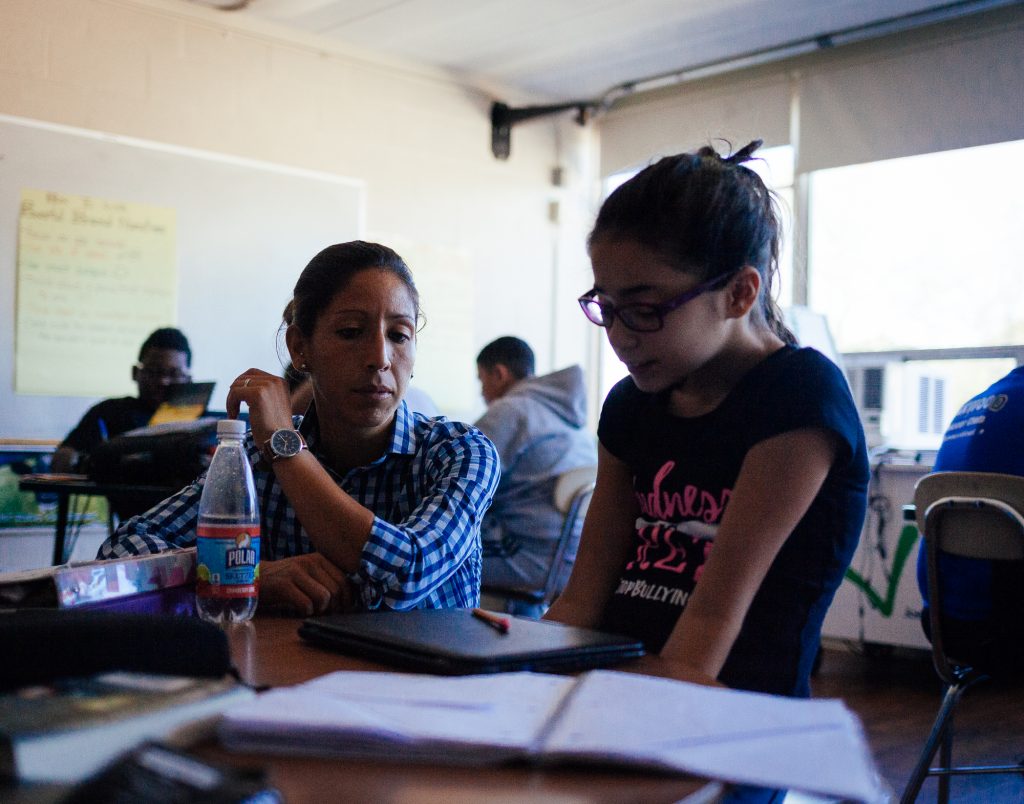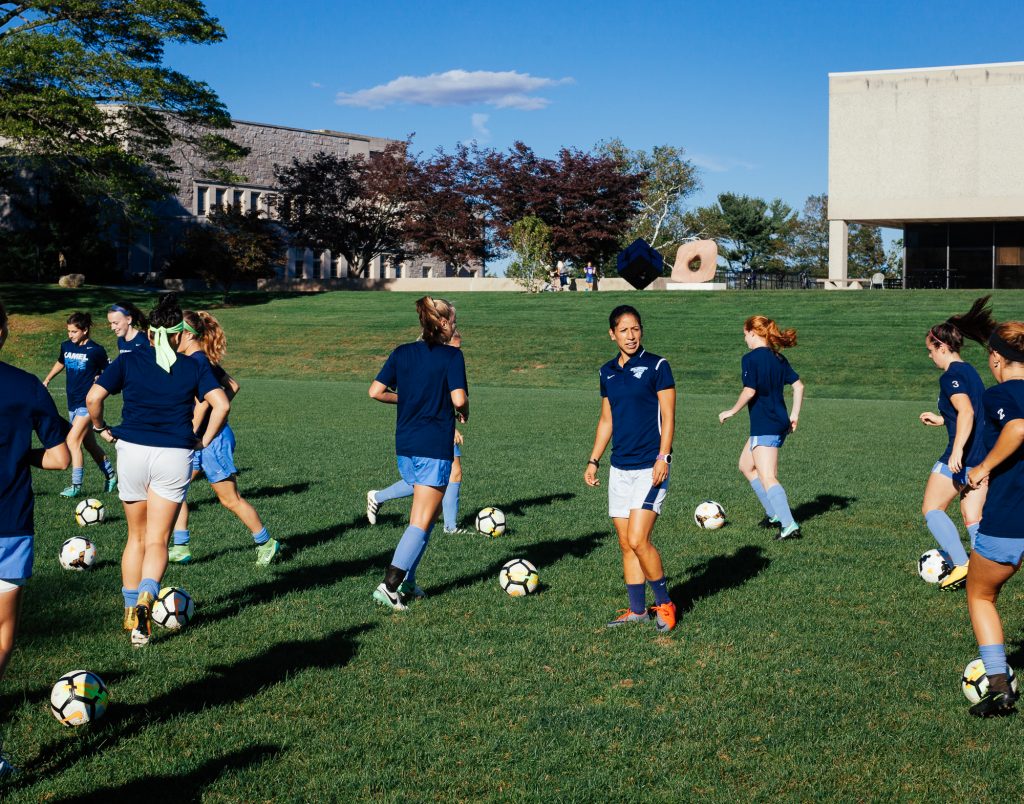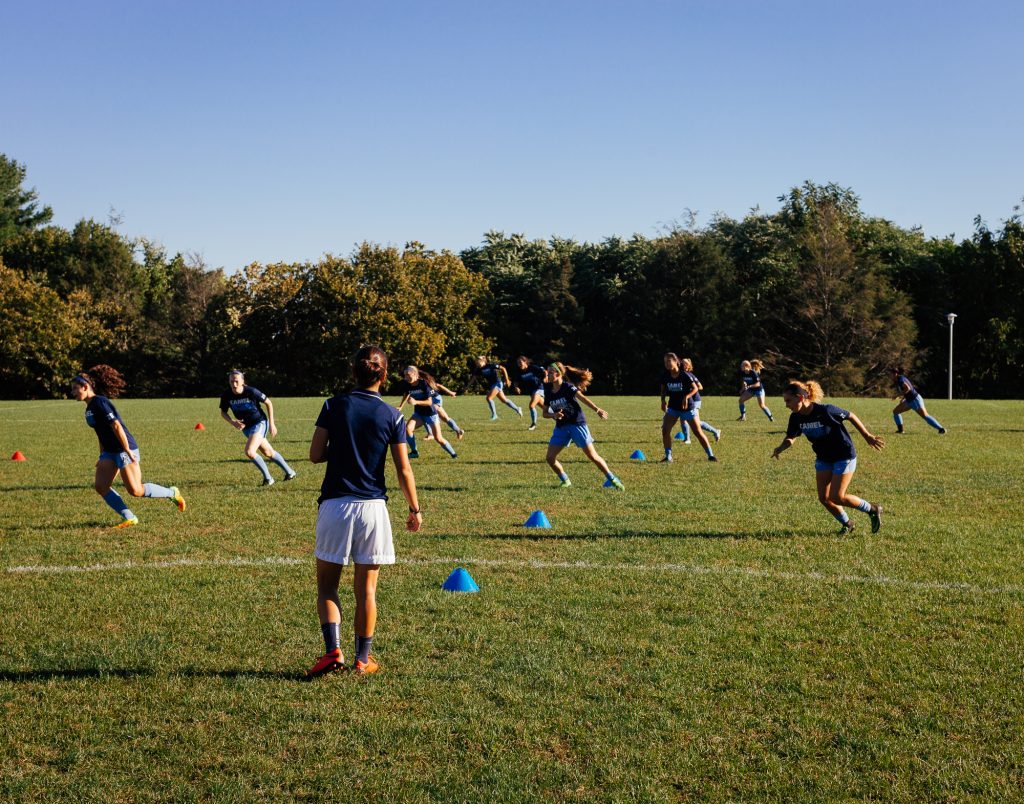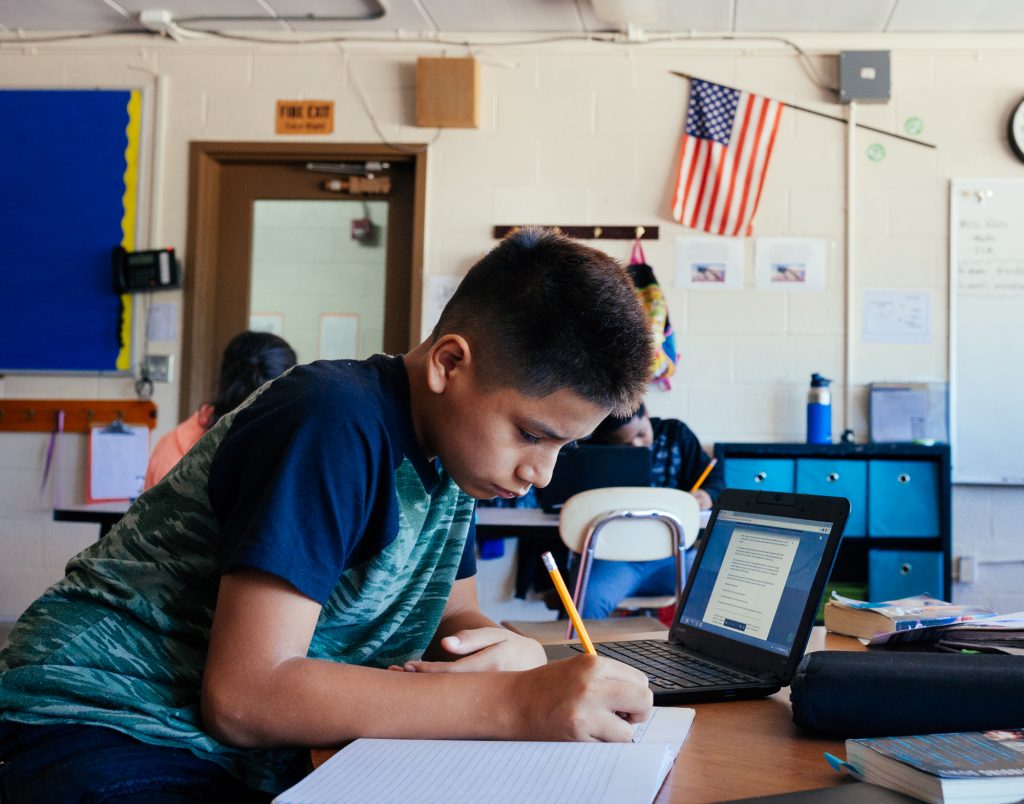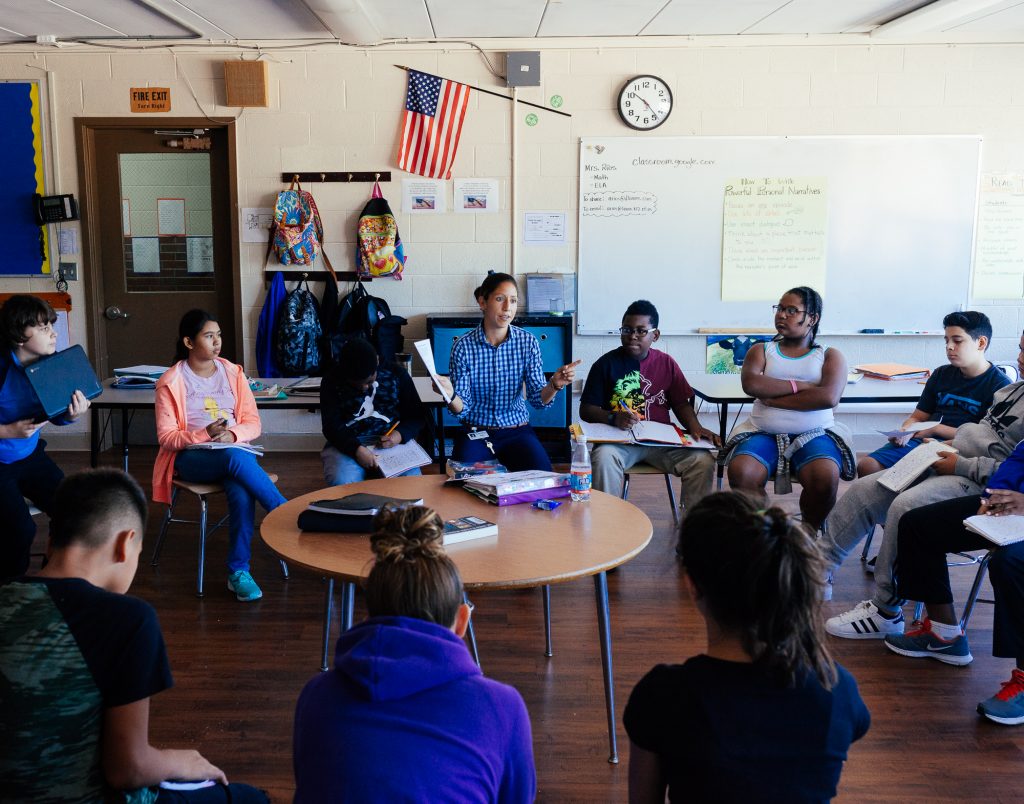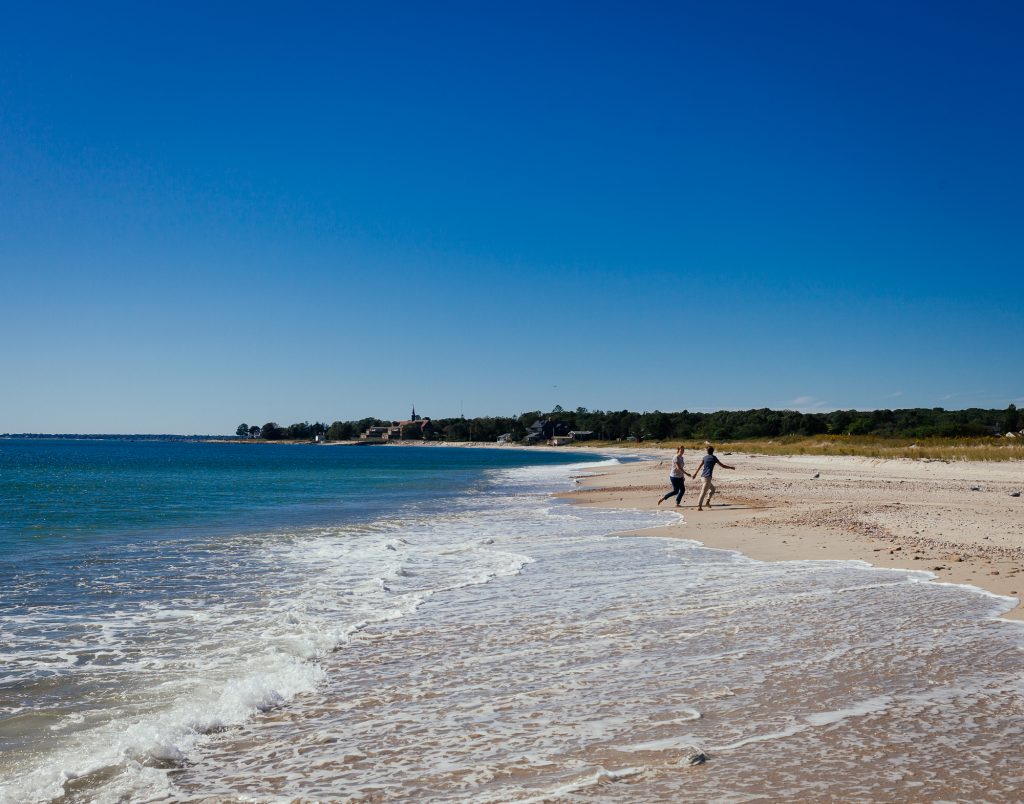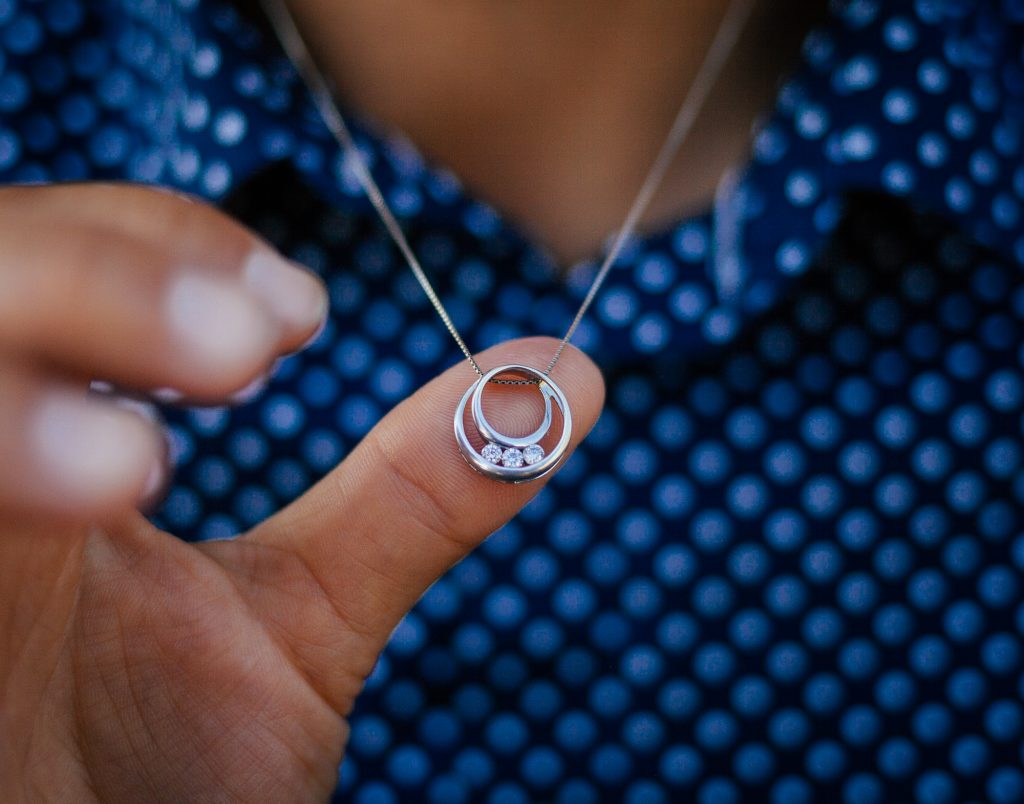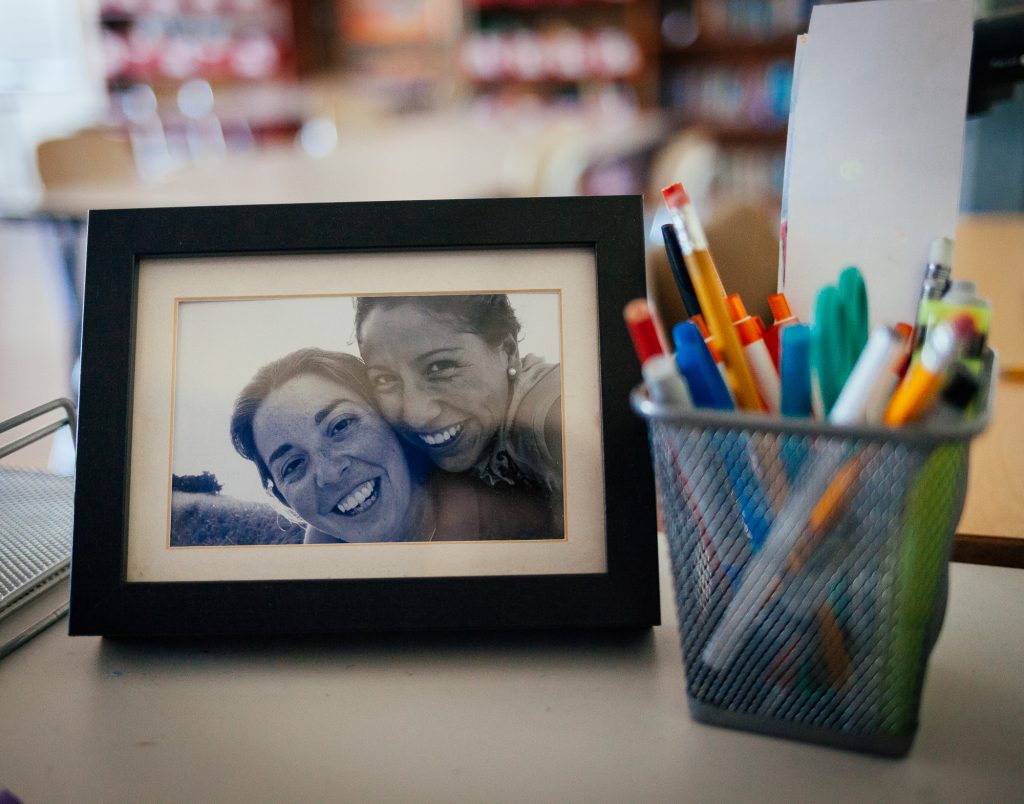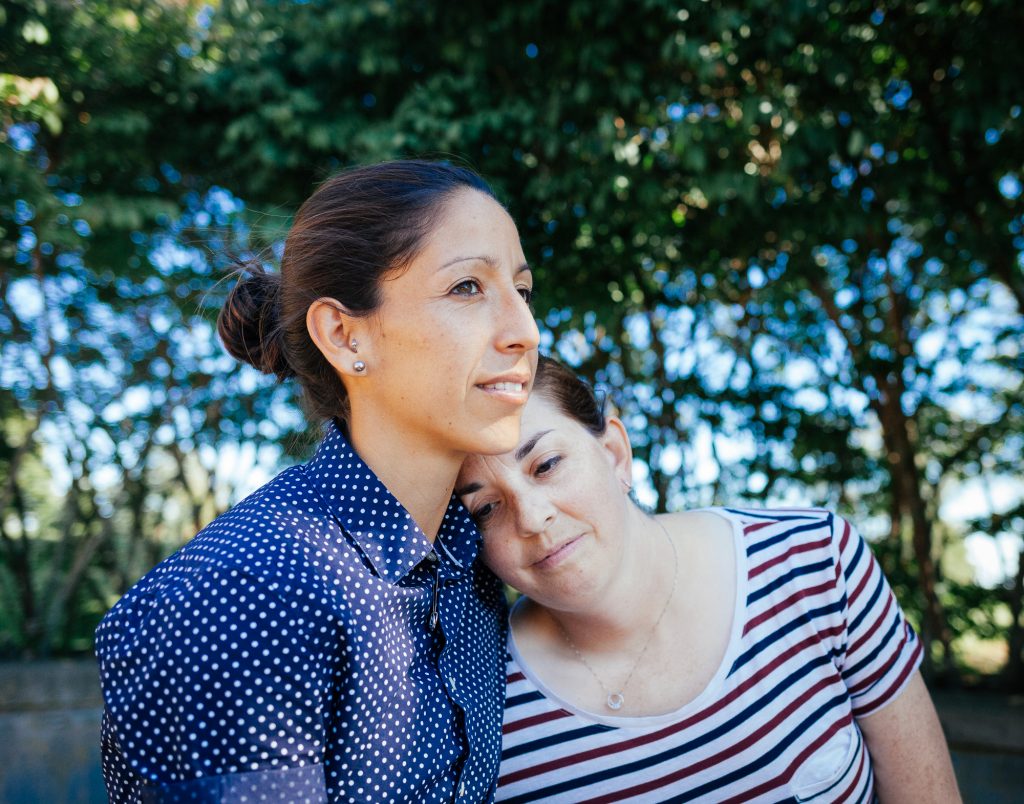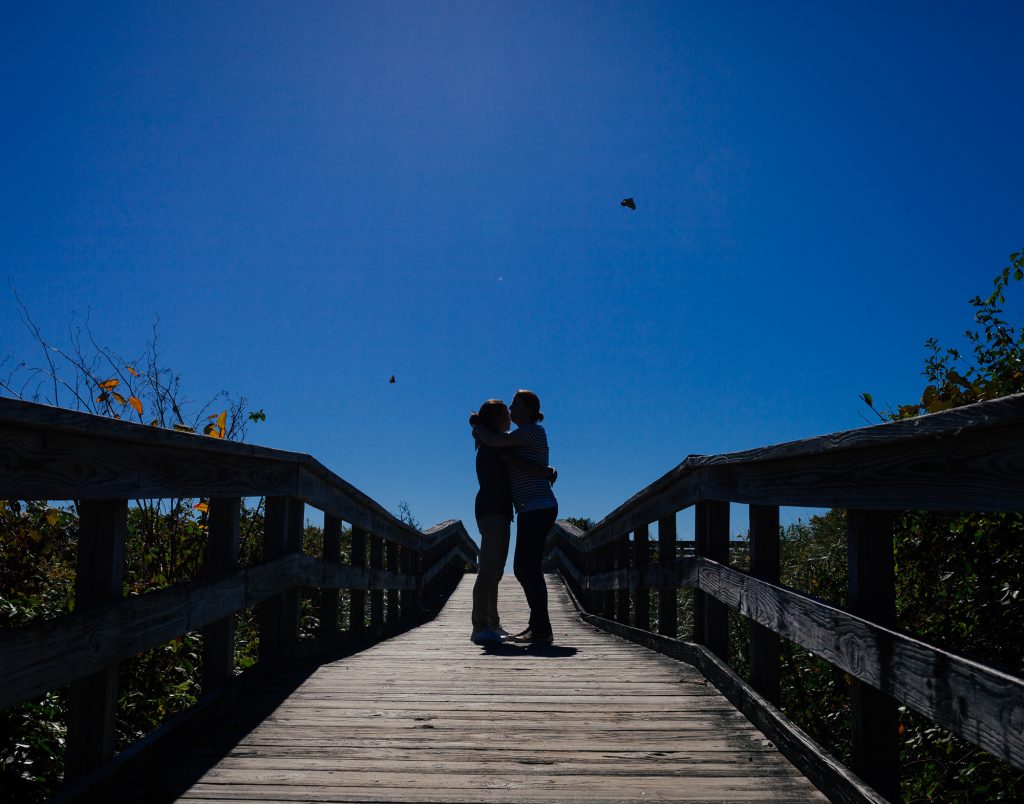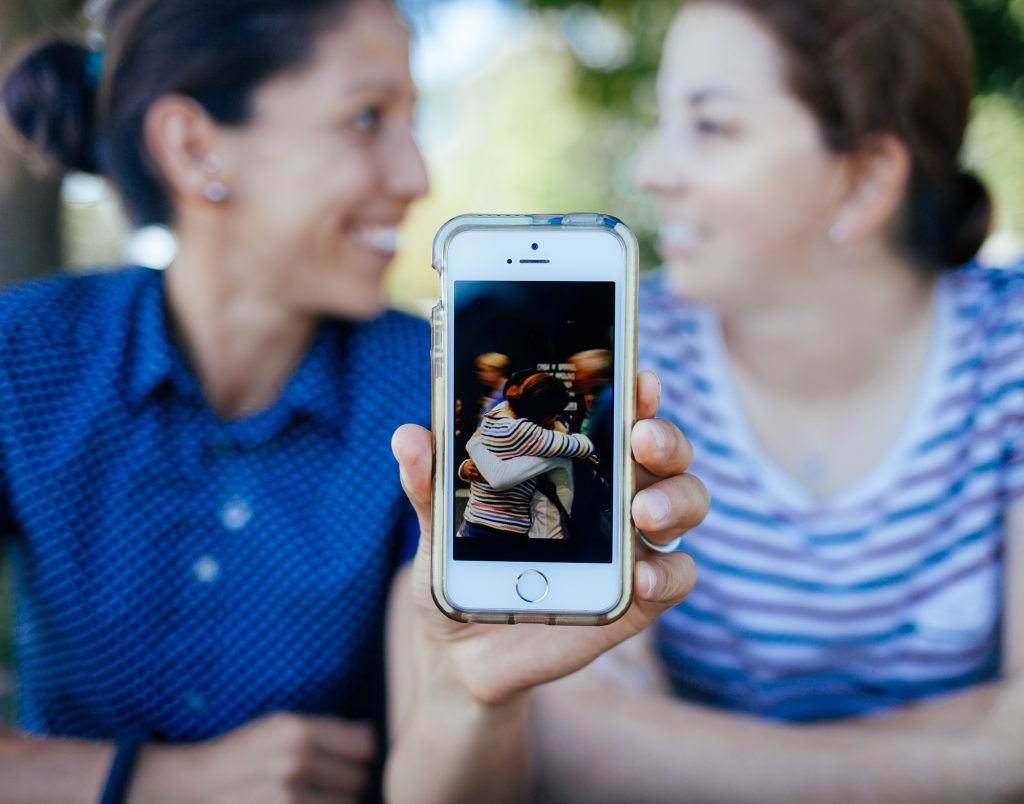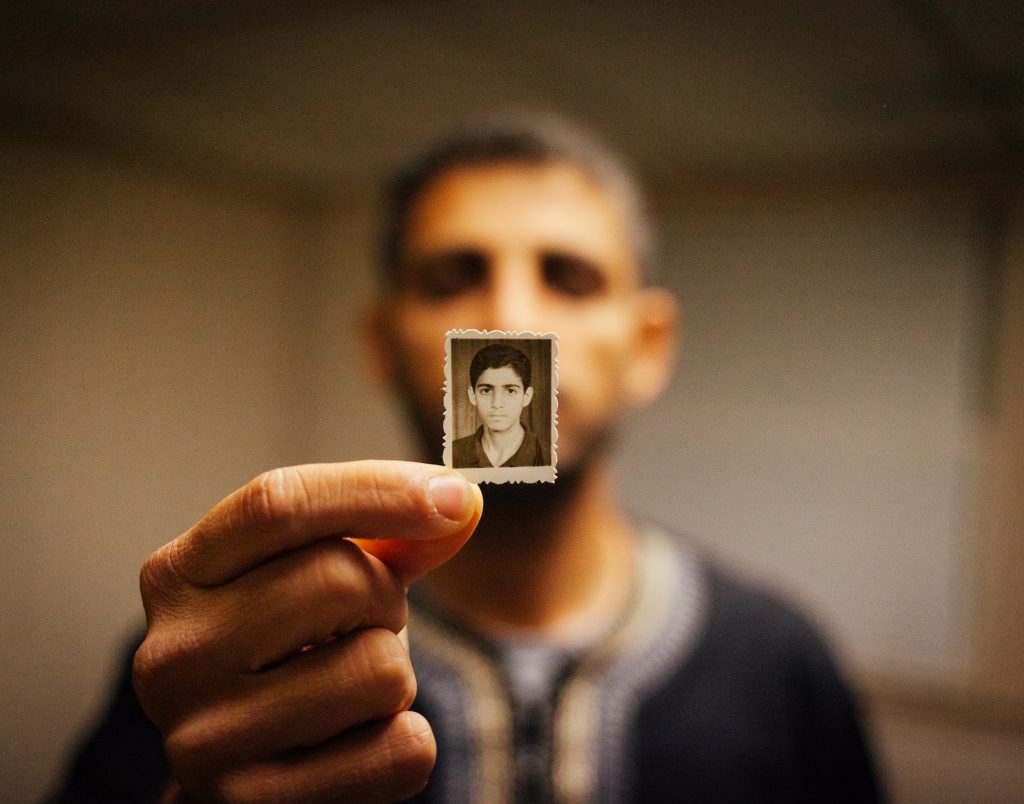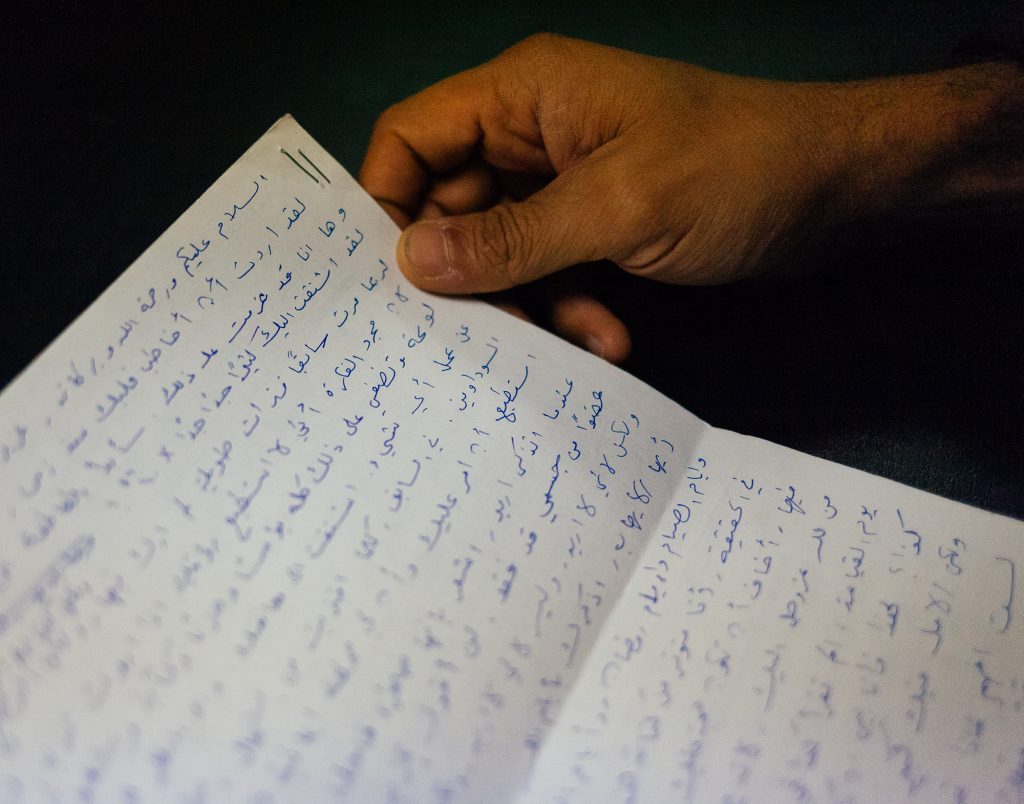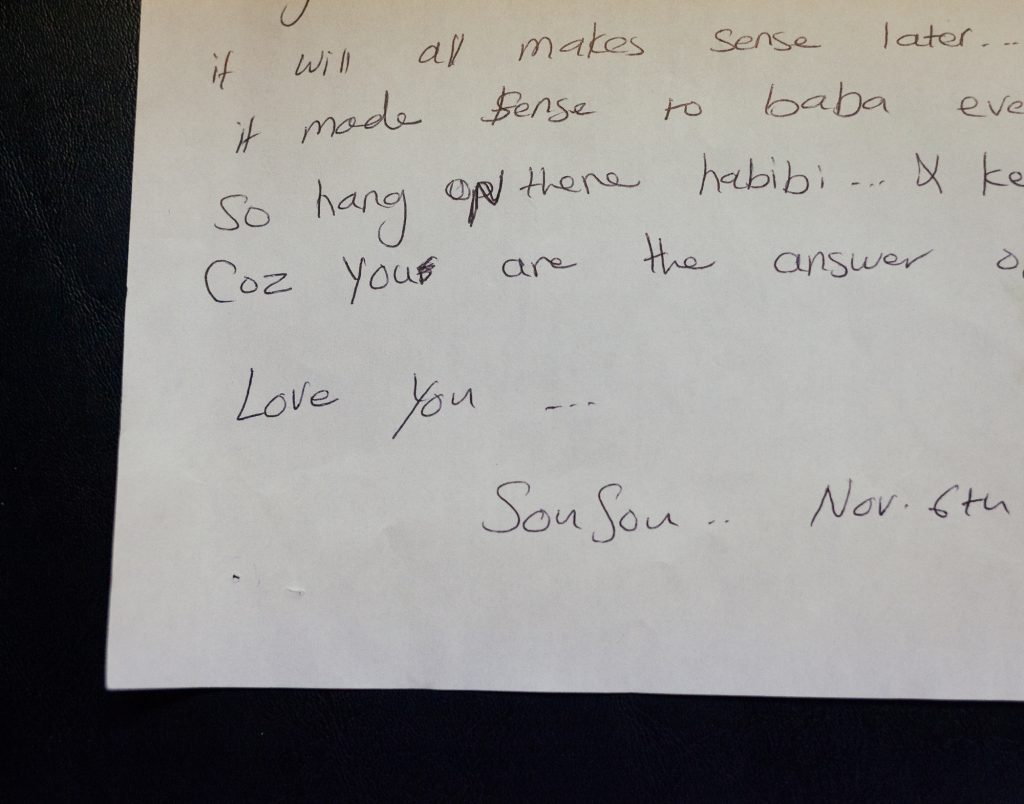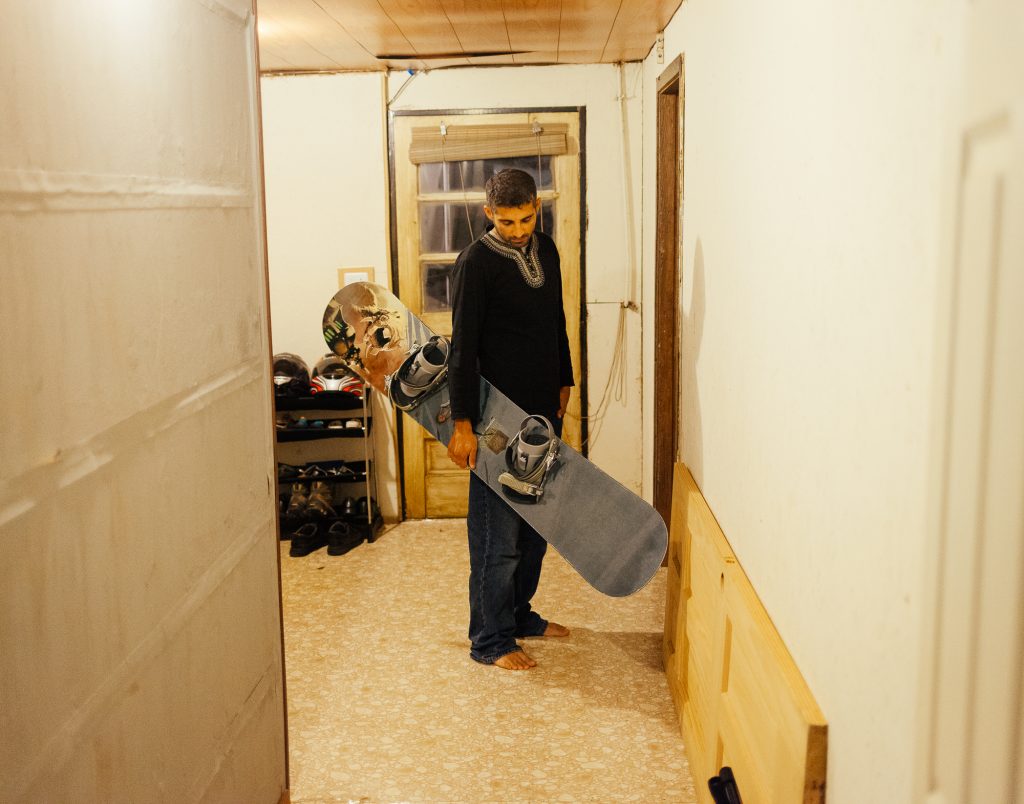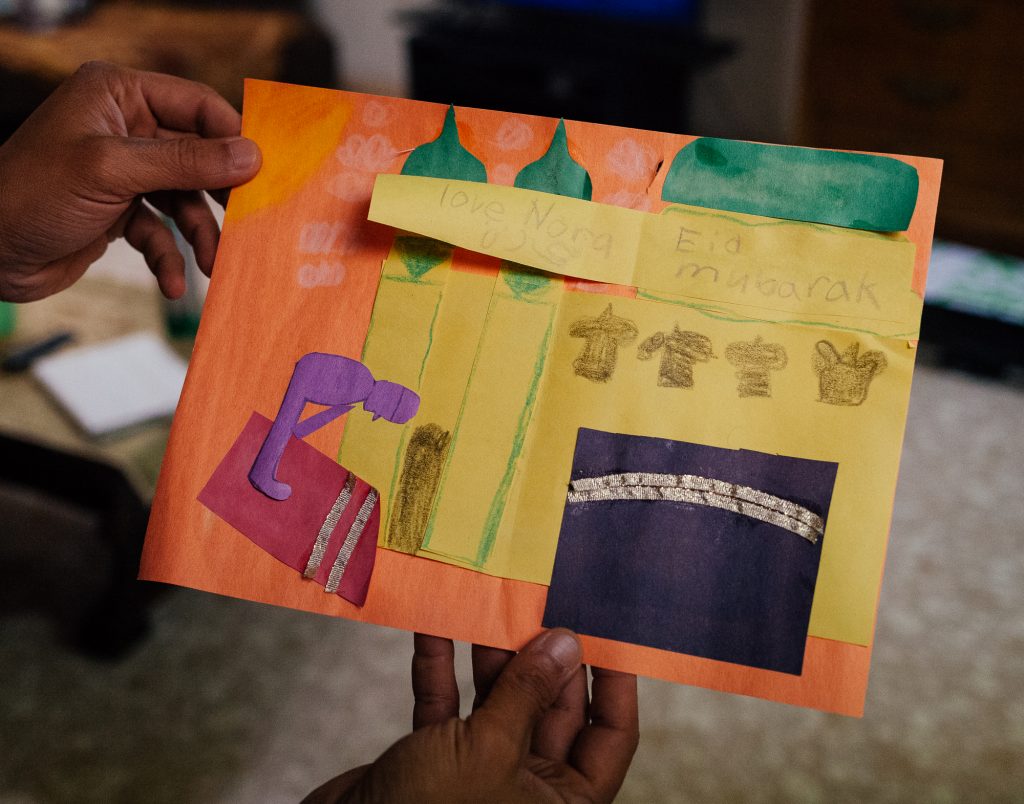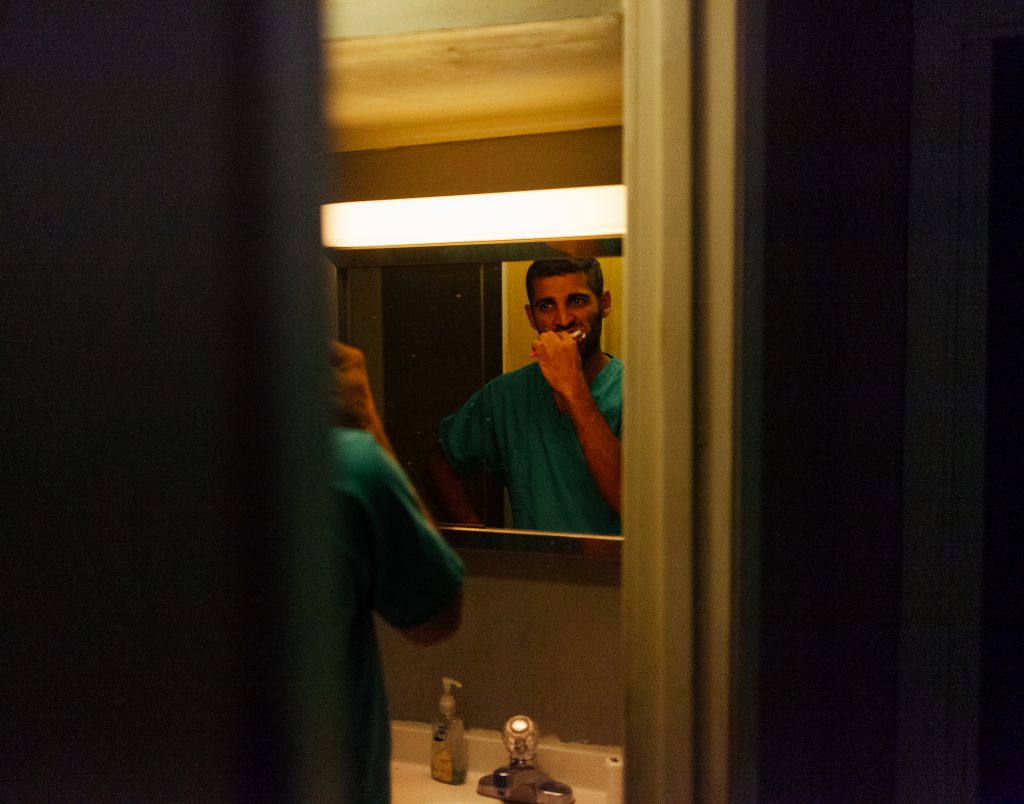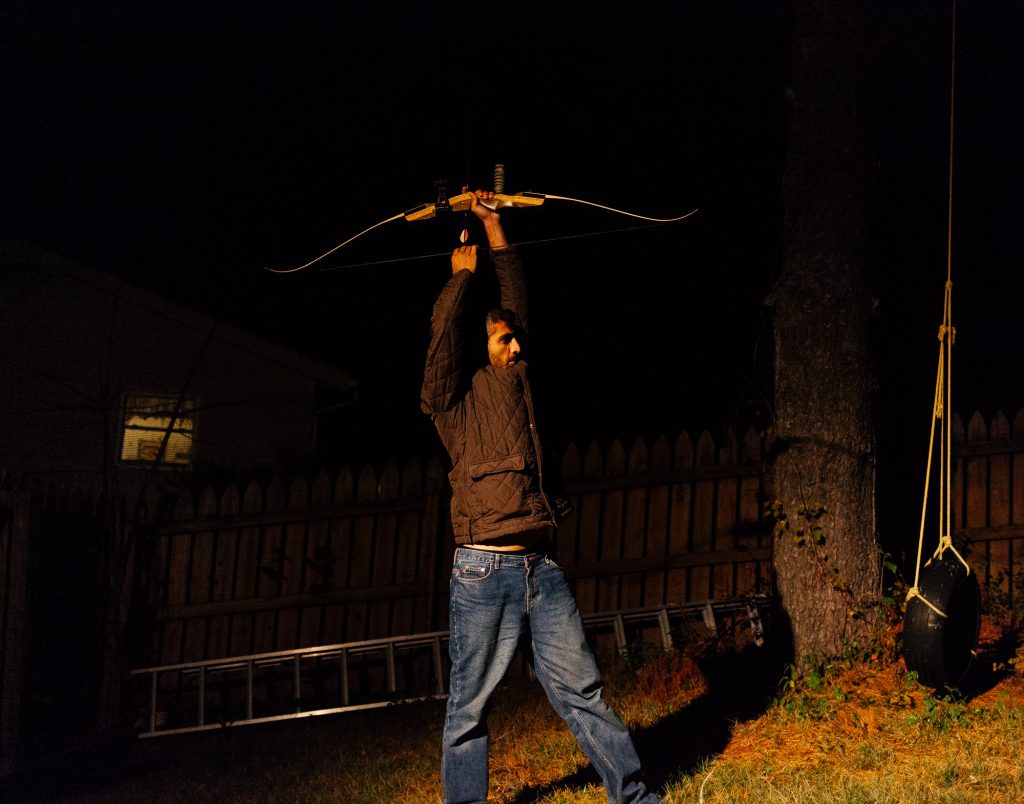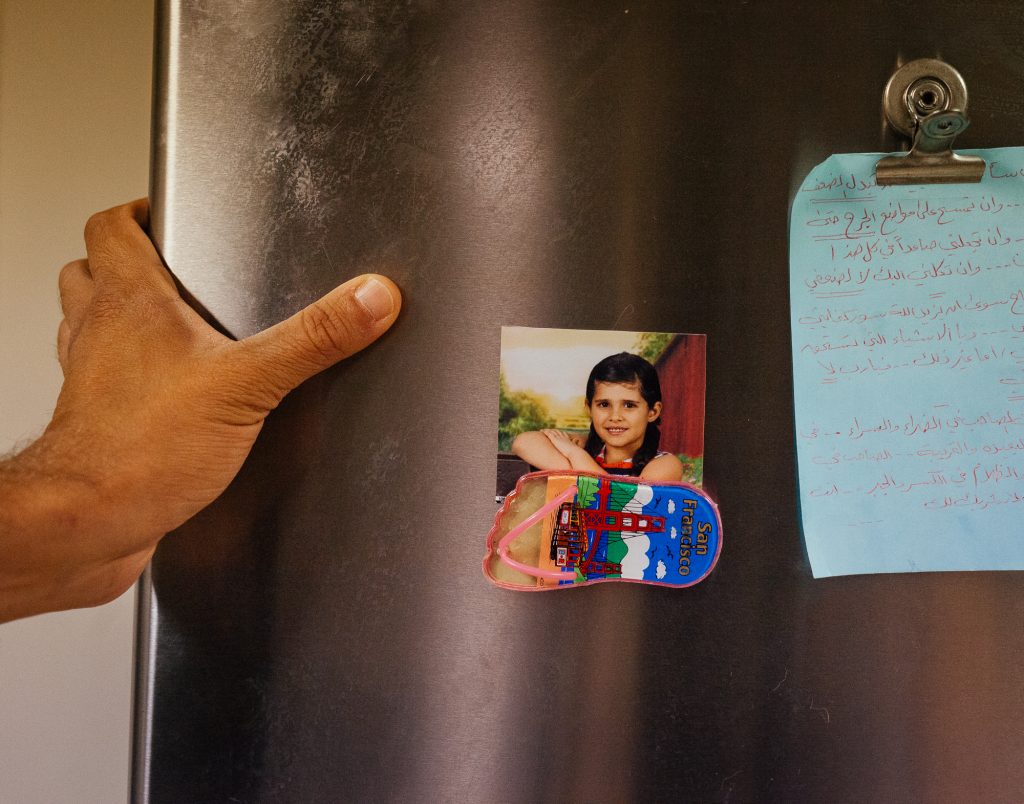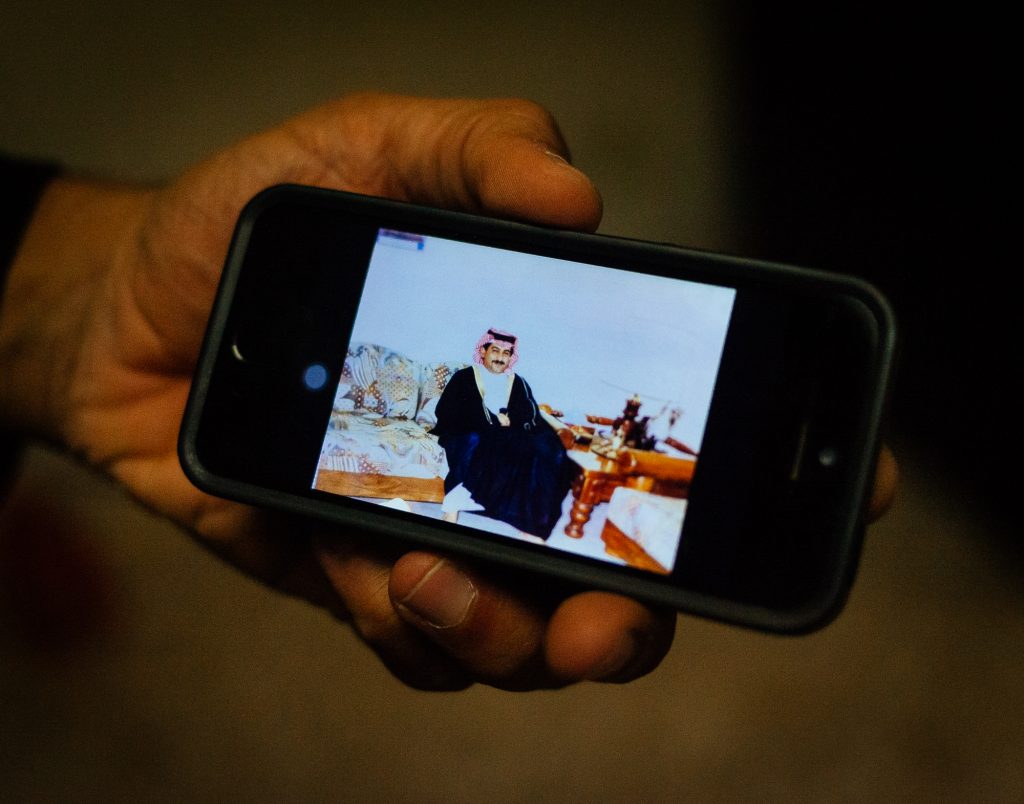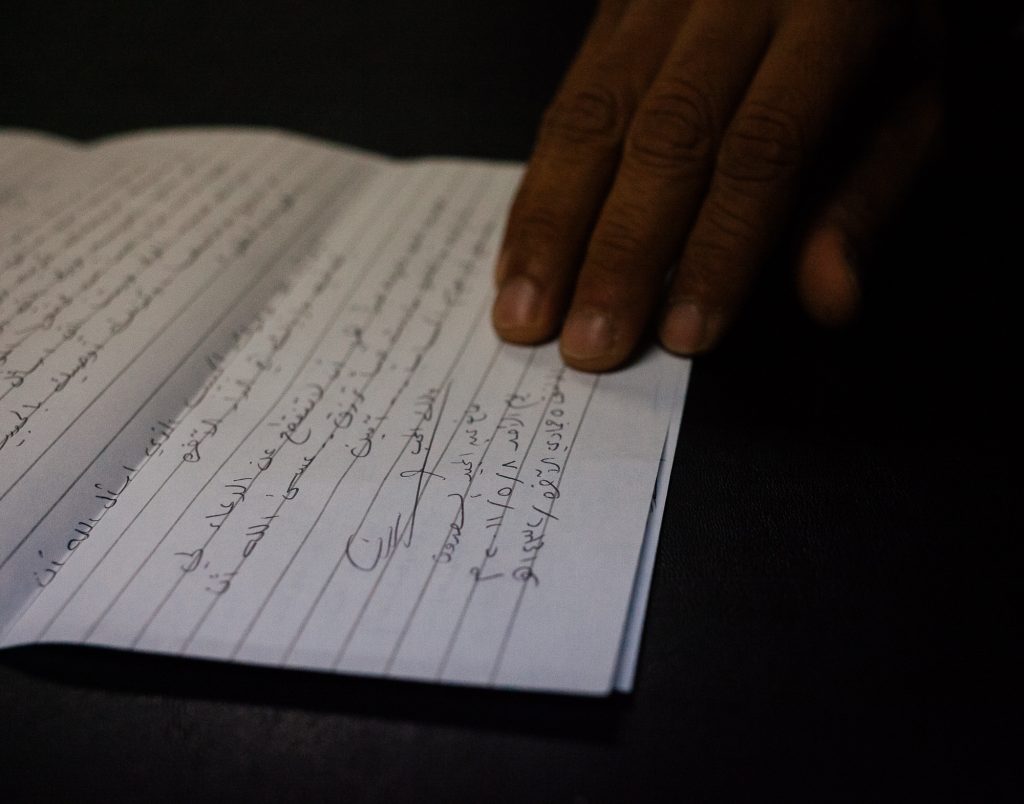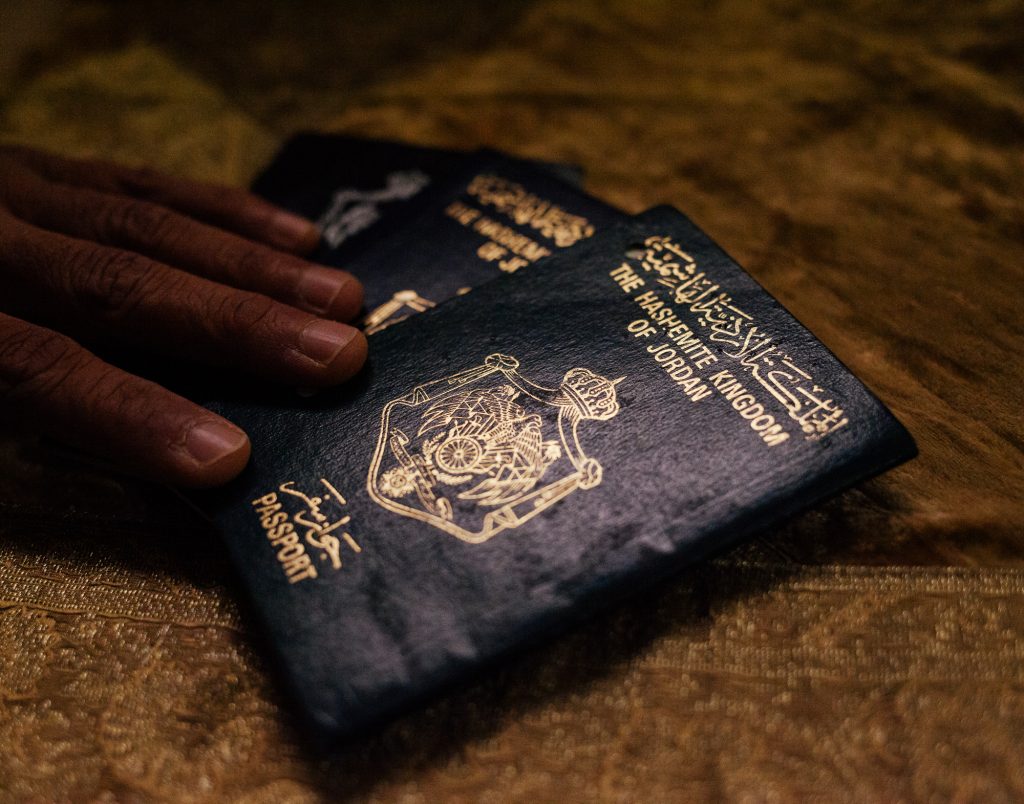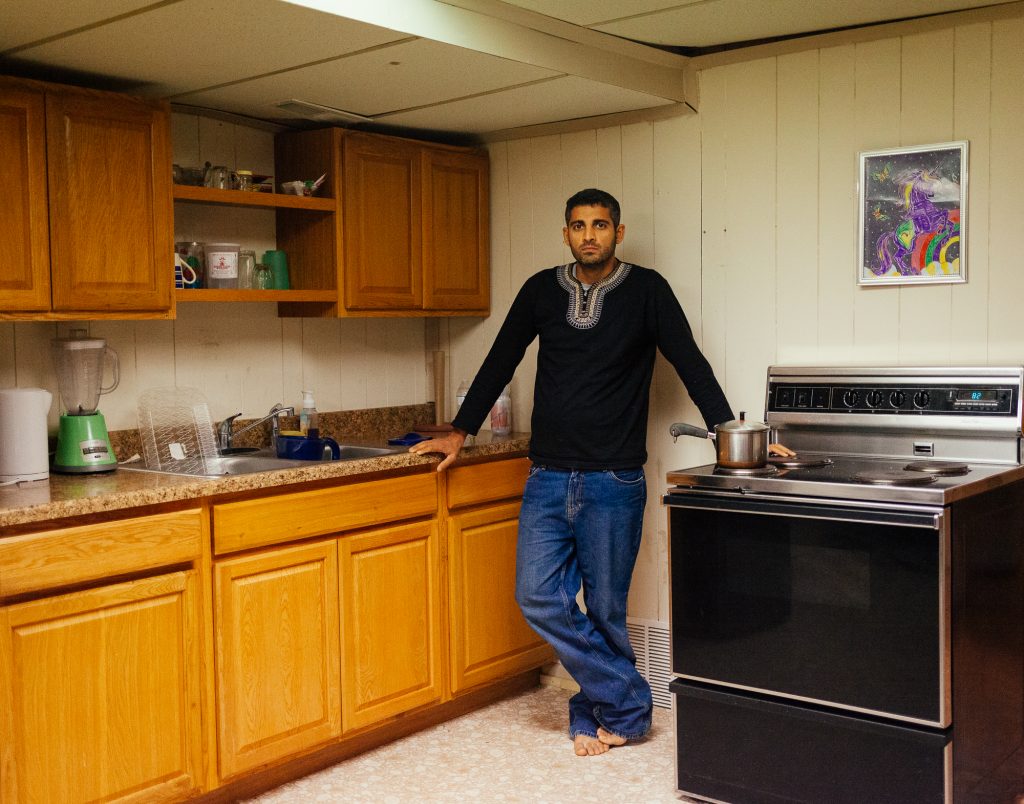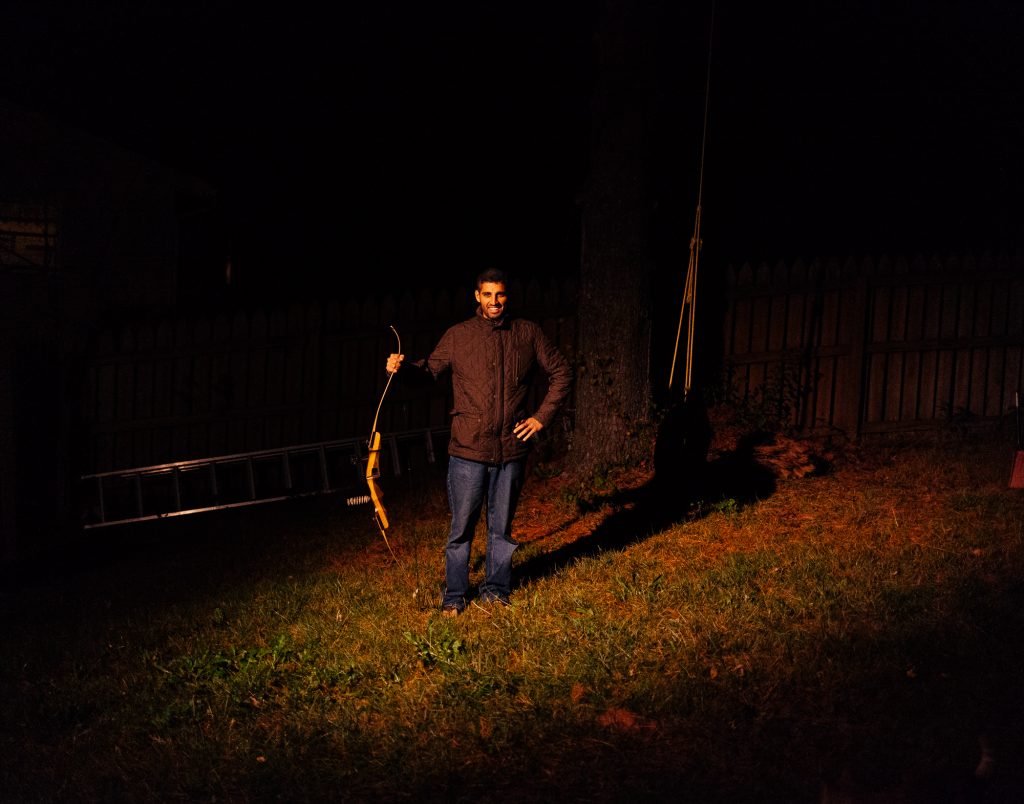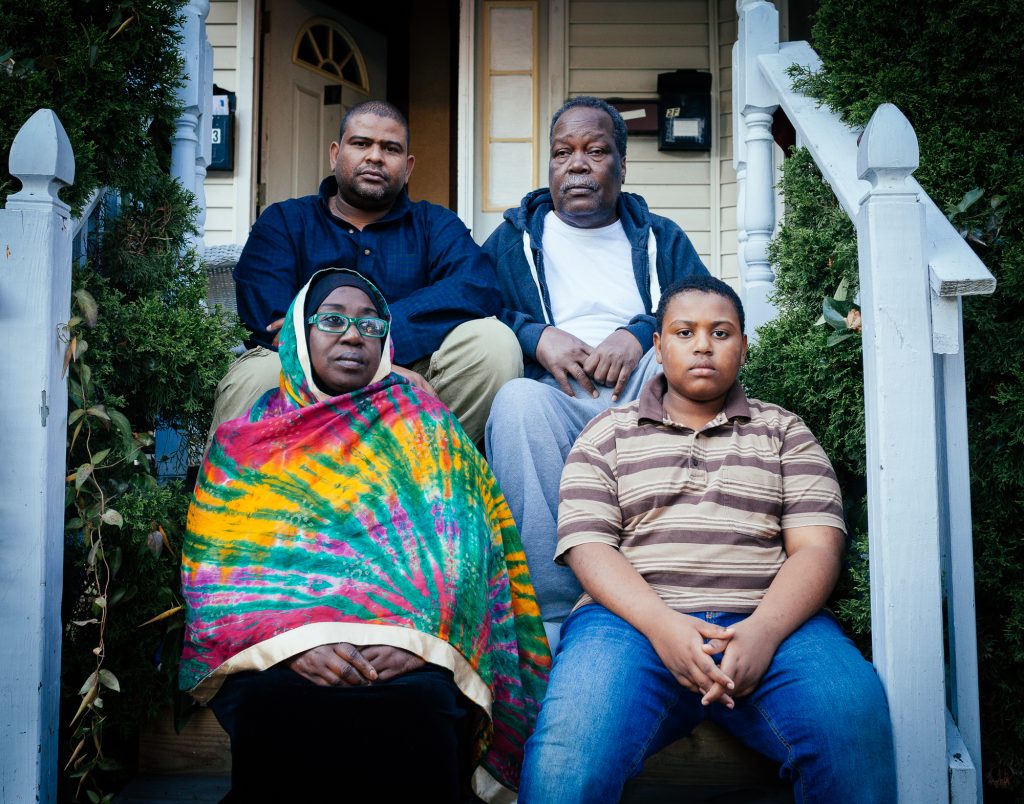
Sudan
Amal remembers Sudan as sunny, wild, and breathtakingly beautiful, and the Sudanese people, as very giving.
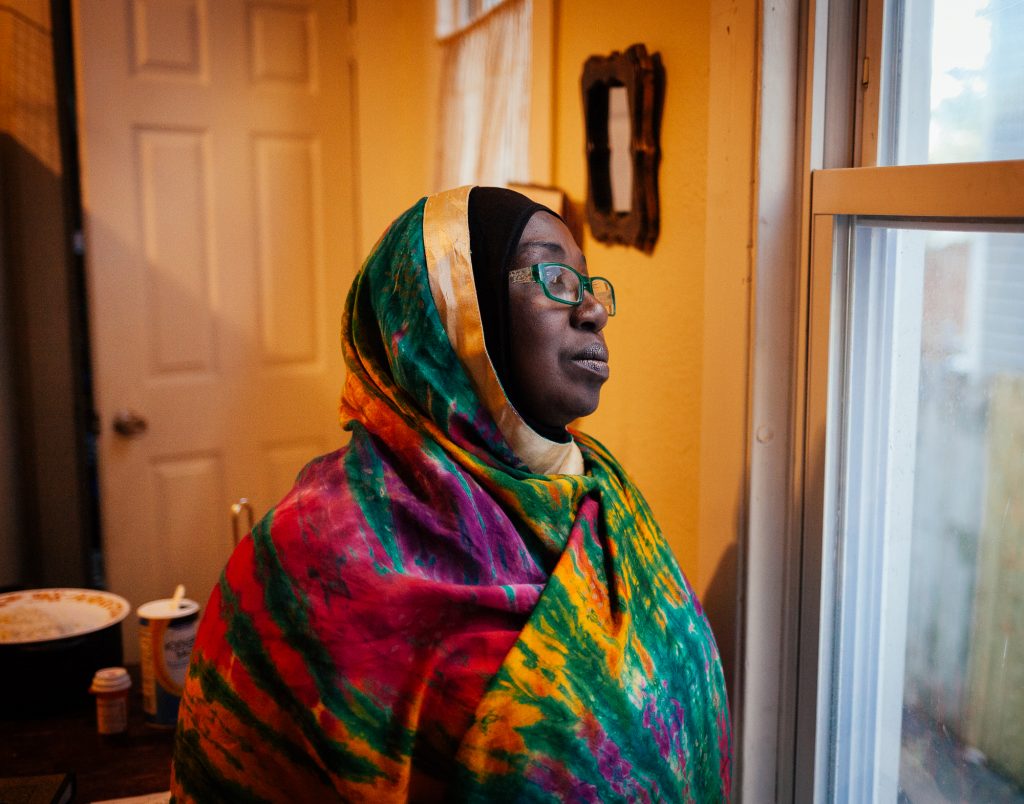
Amal’s grandmother, Souad Kalafala, whose name means “happiness”, took care of Amal when she was growing up.
“She taught me how to cook, clean, and organize everything. She also taught me how to trust myself and how to plan for my future.”
Amal realized as a child that she had a real talent for painting. She started using the ink of henna, something popular in Sudan, to do her drawings. Amal especially loves doing henna for brides and grooms, a tradition at Sudanese weddings.
Amal met her husband Aamir at the hospital in Khartoum when she was tending to her sick father, and in 2002 she and Aamir married. She had a good job working at the Bank of Khartoum, and Aamir was a taxi driver.
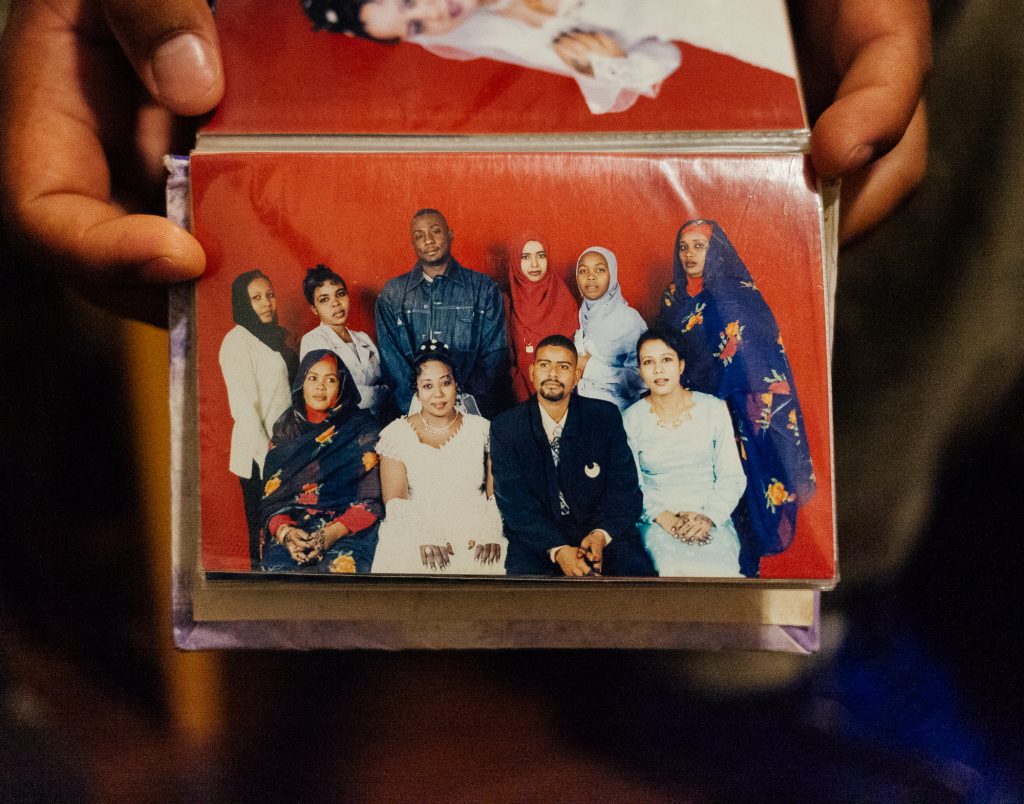
Danger
In 2008 the Justice and Equality Movement (JEM) invaded Khartoum. Both parties, the JEM rebels, and the Sudanese government’s army wore similar military outfits, which made it very difficult for anyone to distinguish between the two. While the conflict was ongoing, a group of men entered Aamir’s taxi, and he drove them to their destination. The next thing he knew, Aamir had been captured and jailed by the Sudanese National Intelligence. They accused Aamir of being a member of the JEM rebels, but he was only a taxi driver doing his job.
“I was imprisoned and tortured for a very long time.”
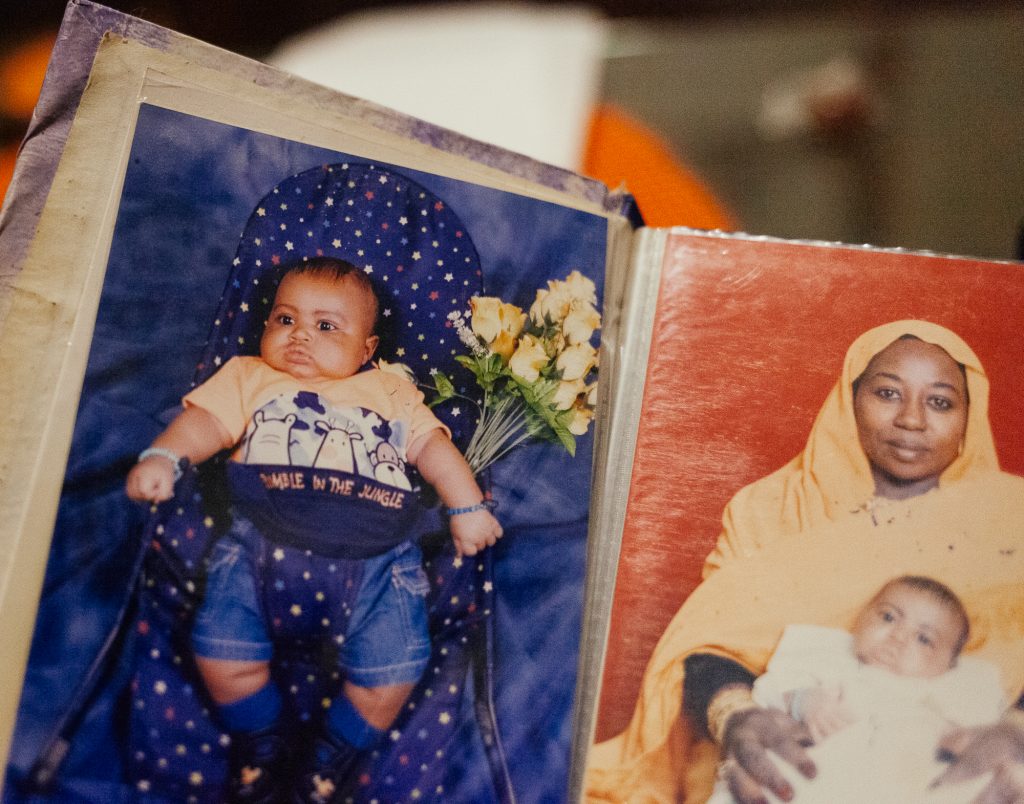
Fleeing to Egypt
Later that year, Aamir escaped from prison, and together the family fled to Egypt with their four-year-old son Ahmed Amir in tow. The five years they spent in Egypt were extremely difficult on Amal and Aamir. When they arrived in Egypt, Aamir was “completely broken” from the torture he had endured – so bad that at one point, he had to be hospitalized. Amal reflects on how long it took for Aamir to get healthy and start communicating again. Despite the terrible memories they have from Egypt, Amal says she met many kind Egyptians.
Their son Ahmed Amir who lived there from age four to age nine, remembers it differently than his parents.
“It was really fun in Egypt! My favorite memory was in a place called Alexandria. I remember how my father taught me how to swim and tried to teach me how to float.”
In Egypt, Amal’s family applied to the United Nations as asylum seekers. After applying, they noticed an improvement in their medical care, and Ahmed Amir was finally able to go to school. For five years, they lived in Egypt, waiting and hoping they would be able to restart their lives somewhere else soon.
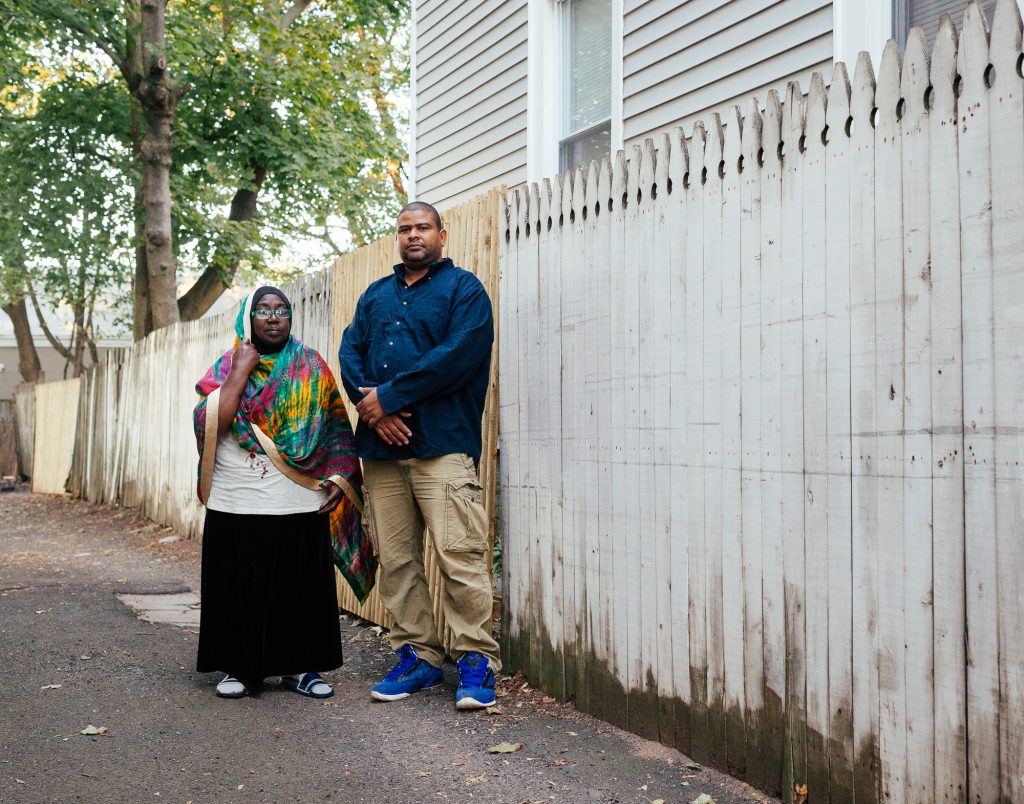
Connecticut
Before leaving Egypt, they found out that their new home would be the United States. Amal and her family landed in Connecticut in November 2013. Staff from IRIS (Integrated Refugee and Immigrant Services), a refugee resettlement agency that helped bring their family to the US, were at the airport waiting. They brought Amal, Aamir, and Ahmed Aamir to their new apartment. That first morning in America was the first time any of them had seen or touched snow.
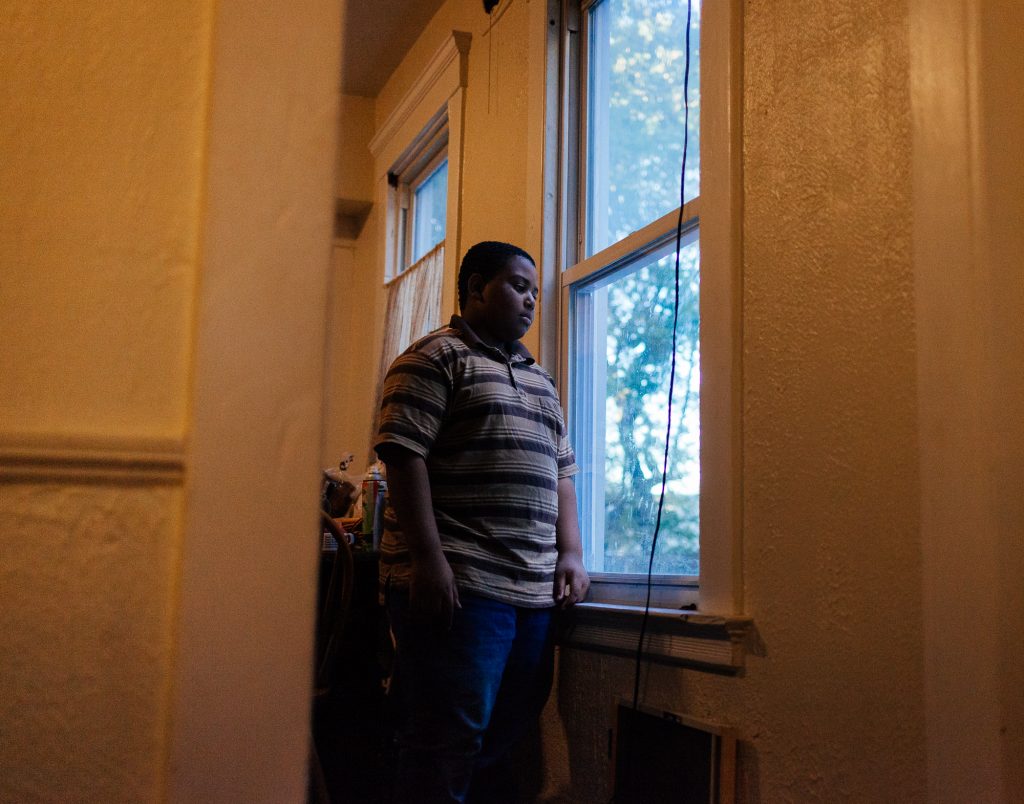
“I woke up, and I thought Americans were crazy! I had never seen snow in my life so I thought I saw flour, and it was some cultural tradition that they threw flour on the ground and everything, but then my mom explained it was snow. Then I went outside and I wasn’t wearing anything heavy. I froze in no time! It was really cold outside, and inside it was really warm. It was a really good day.” (audio below)
IRIS
IRIS has had a lasting positive impact on Amal and her family. According to Amal, since picking her family up at the airport, IRIS has been with them “step by step.”
“IRIS was like a big mom for us.” (audio below)
The morning after they arrived in New Haven, they were driven to the IRIS building where they met the staff. Amal will never forget how they were all smiling. Sometimes weekly and often daily, Amal and her family would go to IRIS if they had any problems.
According to director Chris George, IRIS is not a typical resettlement agency. It doesn’t want to only be “an assembly line of services during the initial months of a refugees’ arrival”. IRIS’s team realizes that refugees need more sustained help. so they provide programming that other agencies might consider extras, like health care, employment services, and an English language program with an early learning program. (audio below)
“We have these resources because the community knows about us and supports us.”
From Chris George’s experience, Connecticut, and specifically New Haven, is a welcoming place to newcomers. The local community sees the benefits of having a diverse population. (audio below)
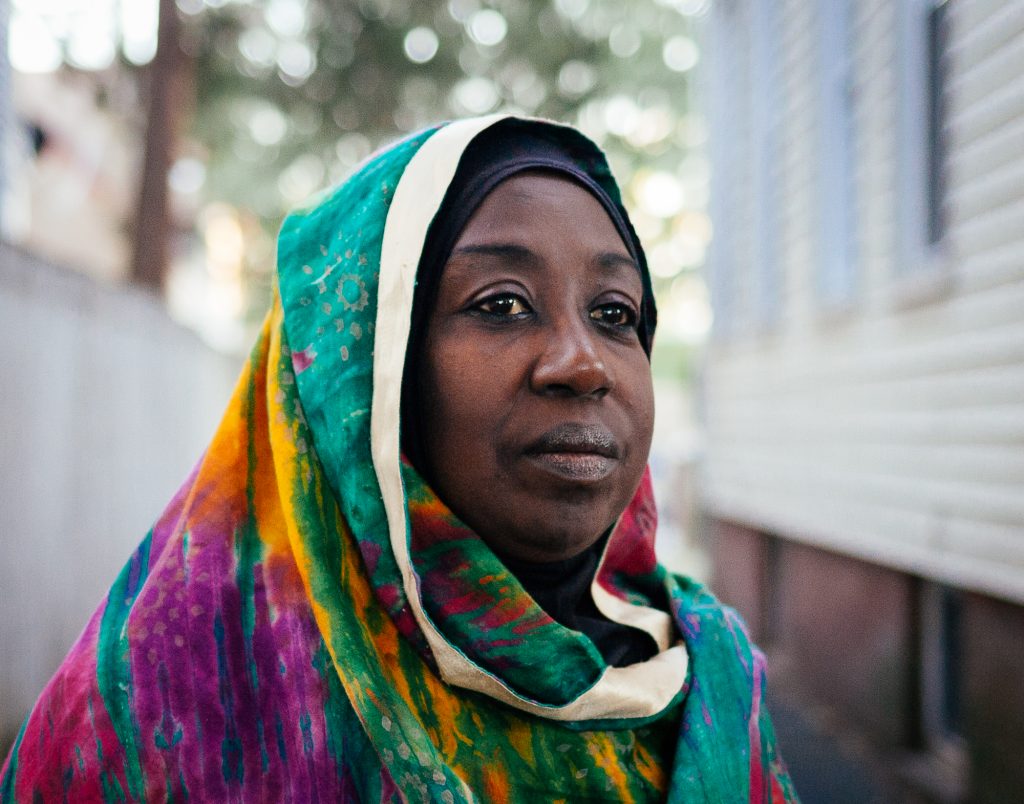
Adjusting
Adjusting to life in Connecticut was challenging. Amal went from survival mode in Egypt – where the only thing she was thinking about was the safety of her husband and son – to the United States, and finally being able to imagine a future. Amal found herself always anxious that she was going to lose this newfound safety. (audio below)
Despite being in a much safer environment, it has been challenging for Aamir and Amal to find work and communicate in English. The English Amal had learned in Egypt was British, and people didn’t seem to understand what she was saying at first. Aside from studying English, Amal works part-time in the Whole Foods produce section and loves her supervisor, and coworkers. Her husband, Aamir, works full time at a local restaurant as a dishwasher. He is often on the night shift and usually works 50 or 60 hours a week. He wants to go to school to improve his English, but he doesn’t have any time right now.
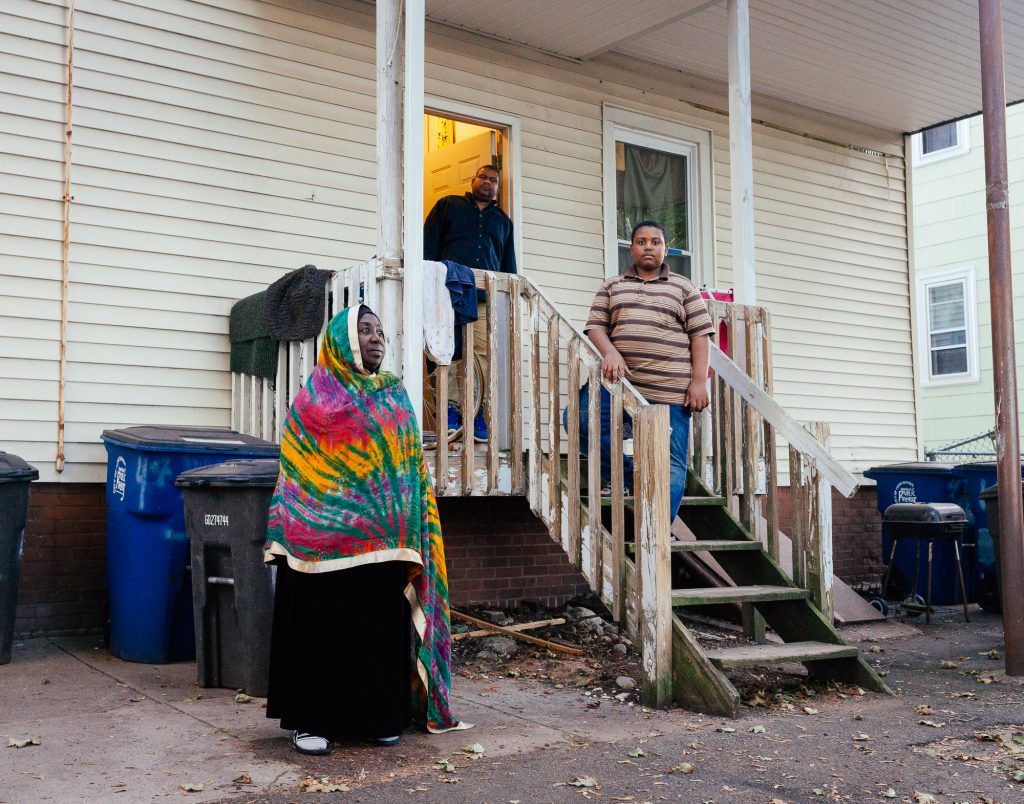
Ahmed Amir started fourth grade after arriving. He remembers being in ESL (English as a Second Language) class with Mr. Zach, someone whose patience and kindness helped him adjust. Ahmed Amir couldn’t believe how many different countries his classmates were from.
“Everybody treated each other equally like nothing was different no matter what race you were or color. Everybody was treated the same.”
Ahmed Amir has developed a real love for basketball since moving to the US, something he would never have played in Sudan. His favorite subjects are geography and history and he is especially excited to be learning Spanish this year, so he can communicate with some of his new Spanish-speaking friends in their language. (audio below)
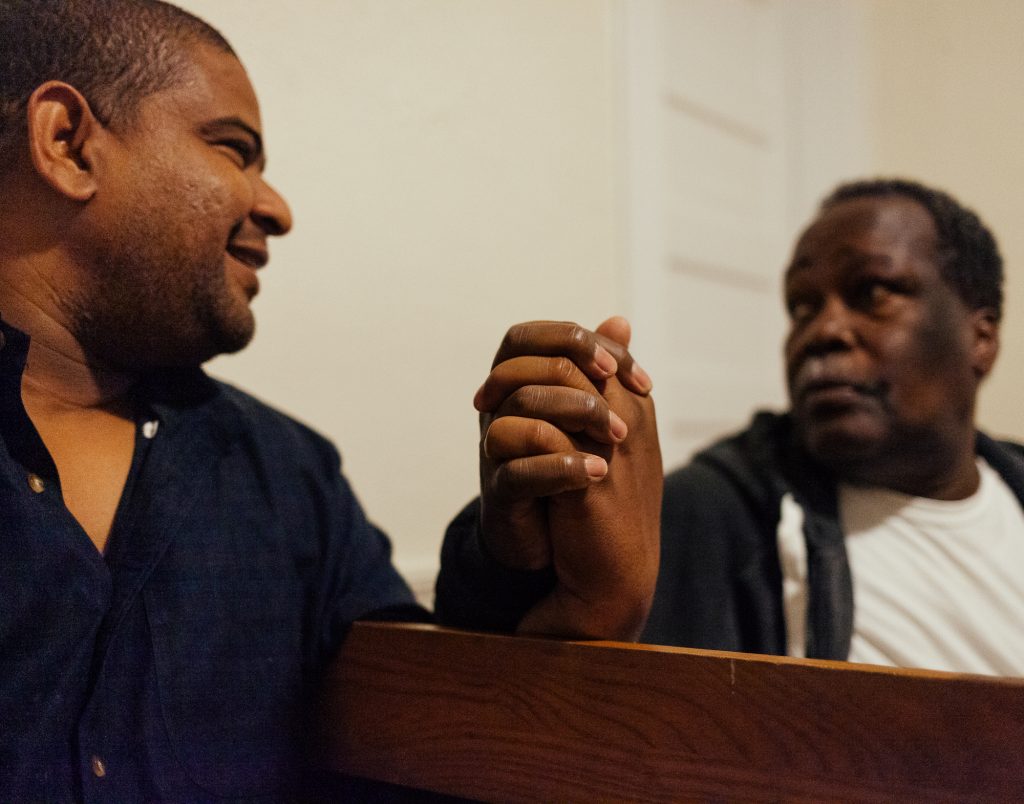
Uncle Adam
They have one other person living in their house, and they refer to him as Uncle Adam. From the Darfur region of Sudan, Uncle Adam had been living in Libya and working as a tailor. When civil war broke out in 2011, he sought refuge at Salum Camp, on the border between Egypt and Libya. Like Amal’s family, he was resettled to New Haven in 2013 but was immediately admitted to hospital for two major surgeries. Today Uncle Adam is blind in one eye, has diabetes, a tumor in his head, and kidney problems.
After arriving in New Haven, Uncle Adam lived for three years in a home with other single men who didn’t have a family. Most of these men in the house were young and busy working, so they didn’t have time to help him. Uncle Adam and Aamir are not from the same family or tribe, but Aamir saw that Uncle Adam was lonely and started visiting him regularly. Aamir would cook for him, do his laundry, shave his beard, and cut his nails. Aamir could see Uncle Adam wasn’t happy there, so he started bringing Uncle Adam to the house for Amal’s Sudanese cooking. (audio below)
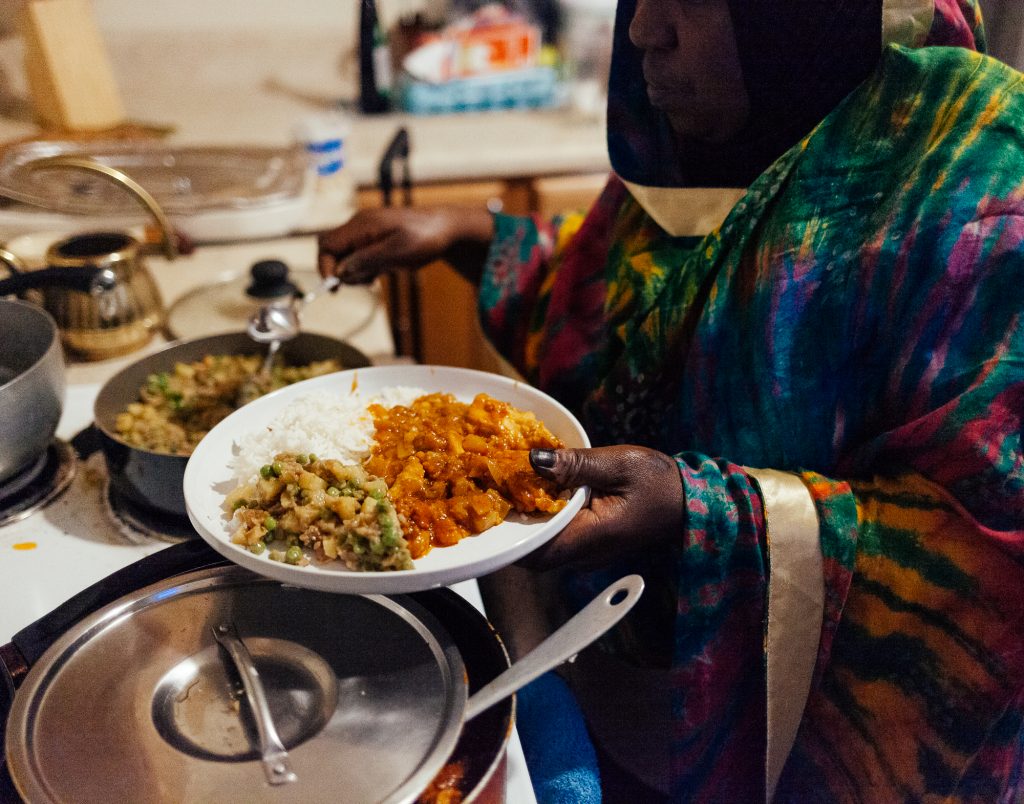
Amal and Aamir realized they could take care of Uncle Adam on a full-time basis. With the help of IRIS, they did all the paperwork to become legally responsible for the care of Uncle Adam. When they first were resettled to New Haven, they lived in a one-bedroom house, but the judge said they needed to change homes for Uncle Adam to have his own room. This change meant an increase in rent, but they are managing.
Faith
Prayer and religion continue to be a big part of their family’s life in America and it’s something that they share with Uncle Adam.
“We take Uncle Adam to pray at the mosque so that he can see other Sudanese people. Now he is one of the community, and he is doing better.”
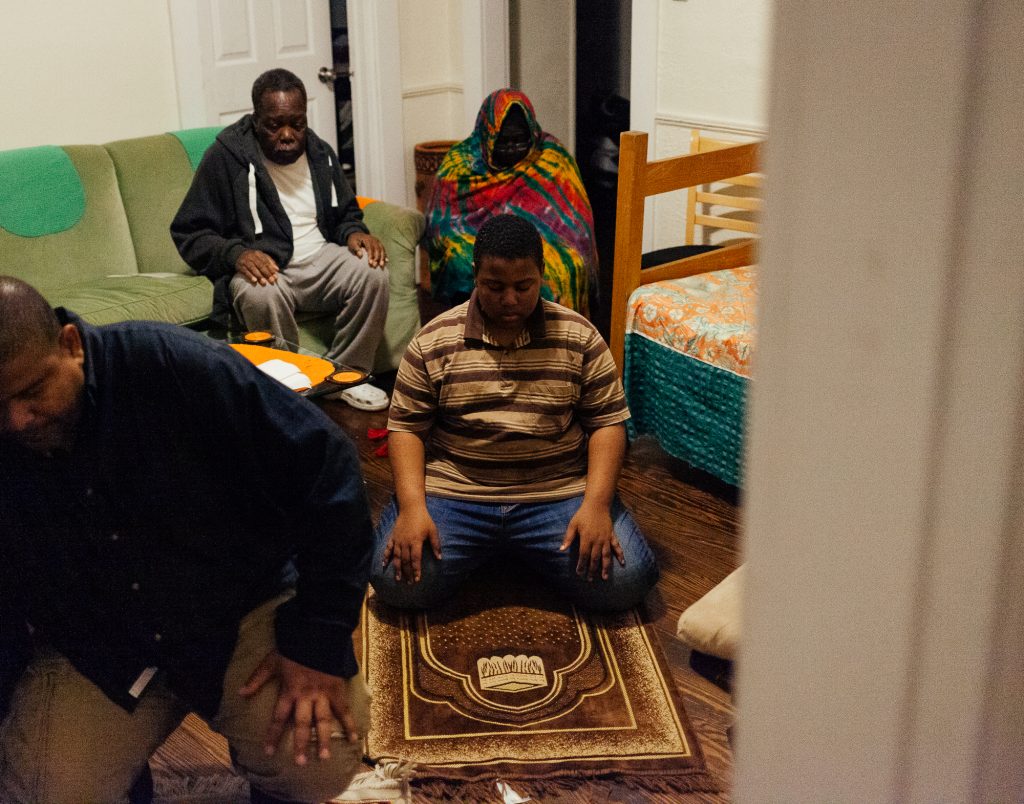
Amal says the saddest part of Uncle Adam’s story is that he was trying everything to get his wife to the USA. With the help of a lawyer from IRIS, they started doing all the documents and coordinating with the US embassy in Khartoum. She got her visa, and one week before leaving for the US, she passed away. Uncle Adam was never able to see her again. All four of his children are still in Sudan, and they don’t have the financial means to visit him.
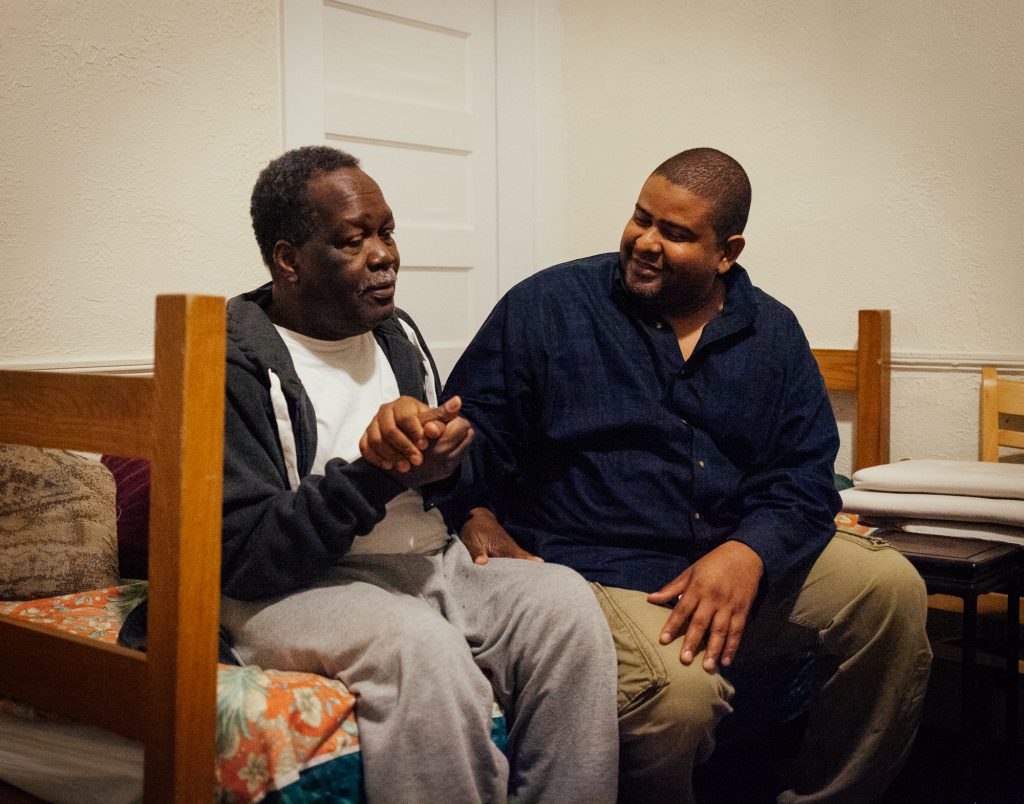
Ambitions
While in Egypt, Aamir learned how to weld. Someday he would love to work as an engineer or pipeline inspector in the future instead of being a dishwasher. Amal wants to improve her language skills, so she can know more about the people she meets, and they can know her. On top of working at Whole Foods, Amal is studying English, as well as culinary arts, with the hopes that it will land her a good job in the field.
“We need to improve ourselves, our language, and be one of them [Americans]. We came to this country, have our own culture and traditions, but we need to know about these people. At first, we felt like guests, but I think after five years, we are a part of this community.” (audio below)
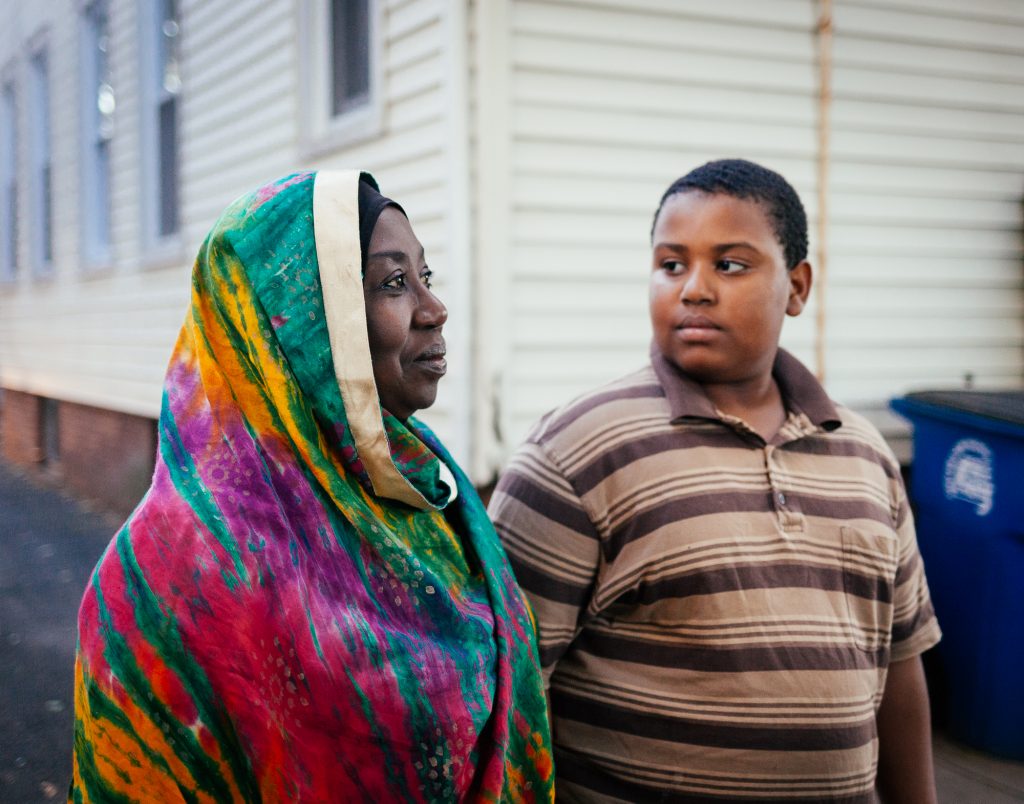
Future
Amal’s dream for the future is for her son Ahmed Amir to be happy, and seize the opportunities that she knows he has in the United States.
“I think he is very lucky because of the education he gets here. There are more opportunities here if you want to improve yourself with knowledge. Everything is available here, unless you don’t want it.” (audio below)
Ahmed Amir dreams of one day traveling to Sudan to see his grandmothers and uncles again.
“I see them over the phone, but it’s been a long time since I’ve seen them in person.”
*Update: Since the interview, Amal moved her family to Vermont for an incredible educational opportunity – private high school education for Ahmed Amir. Uncle Adam stayed in Connecticut, at the recommendation of his doctors.
#FINDINGAMERICAN
To receive updates on the book release and exhibition of “Finding American: Stories of Immigration from all 50 States” please subscribe here. This project is a labor of love and passion. If you would like to support its continuation, it would be greatly appreciated!
© Photos and text by Colin Boyd Shafer | Edited by Kate Kamo McHugh. Quotes are edited for clarity and brevity.
